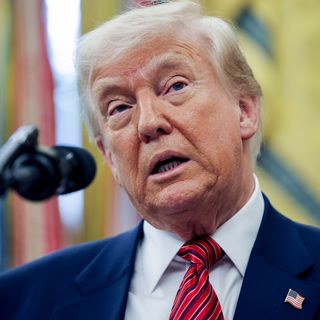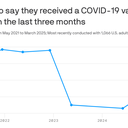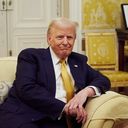Trump signs order to cut drug prices by up to 80%
President Trump signed an executive order Monday morning that he said Sunday would cut prescription drug and pharmaceutical prices "almost immediately, by 30% to 80%."
Why it matters: Drug prices are considerably higher for U.S. patients than in other countries, and Trump and his predecessor President Biden have pushed for lower costs.
Driving the news: Trump's executive order directed Health and Human Services Secretary Robert F. Kennedy Jr. to facilitate direct-to-consumer purchasing programs for manufacturers to sell pharmaceutical products to U.S. patients at "the most-favored-nation price."
- It further ordered officials to communicate price targets to drug companies.
- Should drug manufacturers not offer U.S. consumers the "most-favored-nation lowest price," his order pledged, the administration will take "additional aggressive action."
- "Americans will no longer be forced to pay almost three times more for the exact same medicines, often made in the exact same factories," Trump's order reads. "As the largest purchaser of pharmaceuticals, Americans should get the best deal."
Context: Trump said on Truth Social Sunday, "Our Country will finally be treated fairly, and our citizens Healthcare Costs will be reduced by numbers never even thought of before," said Trump.
- "On top of everything else, the United States will save TRILLIONS OF DOLLARS."
Flashback: Trump proposed the "most-favored nation" plan for Medicare in his first term, but it was halted by a federal court after drugmakers sued.
How it works: The idea of MFN is to tie U.S. drug prices to the generally lower prices paid abroad, typically in government-run health systems.
- It runs counter to free-market orthodoxy but could be hard for Republican lawmakers to refuse with Trump applying pressure.
State of play: The White House earlier this month pressed Congress to add the MFN idea to ongoing Medicaid negotiations, complicating efforts to craft a reconciliation package and raising alarm in the pharmaceutical industry.
- The trade group PhRMA says MFN is a form of government price-setting that could have spillover effects to multiple federal health programs.
- Trump in April signed a separate executive order addressing drug costs that also revived a number of ideas from his first term, including encouraging state plans to import drugs and providing discounted insulin through federally qualified health centers.
- Trump at that time endorsed a pharmaceutical industry-backed change to Medicare drug price negotiations.
What they're saying: "This Foreign First Pricing scheme is a bad deal for American patients," Stephen Ubl, president and CEO of the trade group PhRMA, said in an emailed statement Sunday evening.
- "Importing foreign prices will cut billions of dollars from Medicare with no guarantee that it helps patients or improves their access to medicines," Ubl added.
- "It jeopardizes the hundreds of billions our member companies are planning to invest in America, making us more reliant on China for innovative medicines."
Between the lines: The president has a long history in his first term of talking bigger on drug pricing than what his policies would actually do," wrote Raymond James analyst Chris Meekins, adding that the more grandiose Trump's executive actions, the more likely they'll be successfully challenged in court.
Go deeper: Out-of-pocket drug spending hit $98B in 2024: report
Editor's note: This article has been updated with new details throughout.









/2025/02/08/1738994505132.gif)








